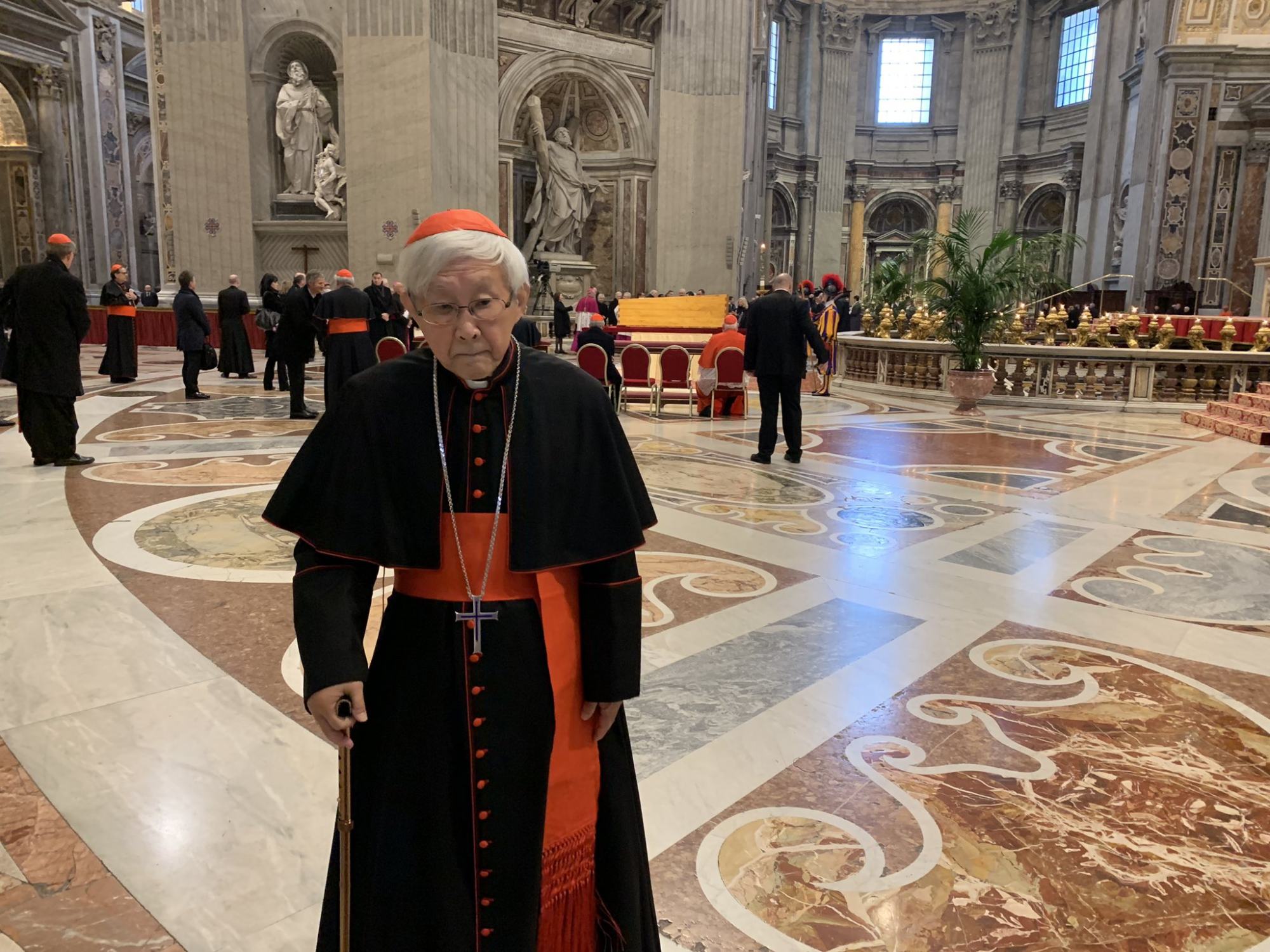Hong Kong opposition activist Agnes Chow ‘not only national security law suspect allowed to leave city’
Chow, 27, was allowed to go to Canada in September to pursue a master’s degree, but had to report to the police this month as part of a national security case.
Then, on December 3, she posted on social media that she had decided not to return to Hong Kong, and added: “I probably will never return.”

Her announcement was criticised by Beijing and Hong Kong officials.
The police source said Chow had not yet been placed on the list of wanted people.
“She is supposed to return to Hong Kong and report to police later this month, so she has not jumped bail,” he explained. “Failure to do so could result in her being listed as a wanted person, with a monetary reward offered for her capture.”
The source revealed that Chow was not the only individual allowed to leave Hong Kong for educational purposes while under investigation for possible violation of the national security law.
But he would not confirm if they were made to write “letters of repentance” and go on an educational trip to Shenzhen to learn about China’s achievements, as Chow claimed she had to do before leaving for Canada.
Chow co-founded the now-disbanded Demosisto party with other young activists advocating self-determination for Hong Kong, and was the poster girl of the city’s pro-democracy movement.
She was detained in 2020 over allegations that she had plotted to collude with foreign forces by calling for sanctions on Hong Kong. The national security law, imposed by Beijing in June 2020, bans acts of secession, subversion, terrorism and collusion with foreign forces.
In her post on December 3, Chow said that in August, she was accompanied by five national security officers to Shenzhen, where she visited an exhibition showcasing China’s opening up and went to the headquarters of social media and gaming giant Tencent.
Beijing warning after Hong Kong activist Agnes Chow says she’s living in Canada
She said the visits were meant to highlight the “remarkable achievements” of Chinese Communist Party leaders and the nation’s technological development.
The police source said other national security law suspects had been allowed to leave the city for reasons other than educational purposes.
Retired Catholic leader Cardinal Joseph Zen Ze-kiun, 91, received court clearance to go to Rome for the funeral of Emeritus Pope Benedict XVI while under investigation for possible breaches of the law.
He was a trustee of the now-disbanded 612 Humanitarian Relief Fund, which aimed to provide financial support to protesters arrested during the anti-government protests of 2019.
He is on bail pending investigations into allegations of colluding with foreign or external forces to endanger national security.
The source conceded that Chow’s decision not to return would impact similar cases in the future, but stressed that police took into account a range of factors when deciding on each application
At a press conference on Thursday, Chief Superintendent Steve Li Kwai-wah cited the Police Force Ordinance and Schedule Two of Article 43 of the national security law to explain the force’s practice of offering bail to individuals under investigation.
He said the principles governing bail conditions were “not hard and fast”, as police would accommodate the needs of the suspect or defendant.
Who were the young faces of Hong Kong’s democracy movement and where are they now?
“Very often, when it comes to bail, there are discussions with the defendant,” he said. “For instance, if there are academic needs, that they can’t report at the police station as they need to be at school, we will change [the reporting time] for them. If they have moved homes and wish to change their report location, we will also adjust accordingly.”
He added that police had changed departure restrictions for persons on bail before, depending on the request and risk posed in doing so.
“These measures aren’t stipulated by law to penalise the person, but merely to help us investigate,” he said.
Asked whether the “letters of repentance” and trip to Shenzhen were a part of Chow’s bail conditions and an established practice, Li said bail conditions only concerned the sum and reporting time.
Veteran criminal lawyer Stephen Hung Wan-shun said that under Hong Kong’s criminal law, police had to consider bail for an arrested person if there was insufficient evidence to take the matter to court 48 hours after arrest, so long as police were satisfied the person would not abscond and the crime was not serious.
He said the bail sum and frequency of reporting to the police station was often flexible, as police had no reason to control a person’s movements if they already believed the individual was unlikely to flee.
Under the national security law, suspects are by default not allowed to be on bail. Article 42 of the law stipulates that no bail shall be granted unless the judge has sufficient grounds to believe that the suspect or defendant “would not continue to commit acts endangering national security”.
As of June 30 this year, about 260 people had been arrested under the law and three-fifths have been charged.